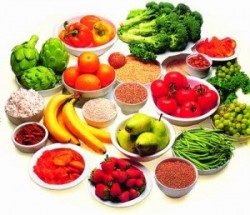BPH Home Remedies
 Home remedies for enlarged prostate can facilitate alleviation of symptoms of benign prostate hyperplasia. Commonly referred to as BPH, the effects of the enlarged prostate on male health can be significant if left untreated. However, the patient should be sure to get a complete medical evaluation of his condition before seeking to alleviate symptoms of an enlarged prostate. It is critically important for the patient to have a reliable medical baseline as to what condition the prostate is in at the time he chooses to deploy home remedies for enlarged prostate conditions. The reliable medical baseline rules out cancer of the prostate which can be fatal should it spread beyond the gland itself. Therefore it is crucial to survival that the baseline be established first.
Home remedies for enlarged prostate can facilitate alleviation of symptoms of benign prostate hyperplasia. Commonly referred to as BPH, the effects of the enlarged prostate on male health can be significant if left untreated. However, the patient should be sure to get a complete medical evaluation of his condition before seeking to alleviate symptoms of an enlarged prostate. It is critically important for the patient to have a reliable medical baseline as to what condition the prostate is in at the time he chooses to deploy home remedies for enlarged prostate conditions. The reliable medical baseline rules out cancer of the prostate which can be fatal should it spread beyond the gland itself. Therefore it is crucial to survival that the baseline be established first.
Scope of this Article. This article focuses on home remedies for enlarged prostate. The reader is advised to become familiar with the array of possible symptoms of BPH, the difference between BPH and cancer, and the different theories of what causes enlarged prostatic complexes. Much is still to be verified by settled medical research on the subject. What is clearly known is that diet and lifestyle choices can alleviate difficulties experienced by male patients who have noticeable symptoms. This article defines some of the more common home based remedies that can address those symptoms related to difficulties around urinary discharge, the most common symptoms of BPH.
Plants and Prostate Health. Certain plant compounds can inhibit biochemical processes in the male endocrine system which are suspected of fostering prostate growth in men after the age of 50. There are two culprit hormonal compounds suspected of fostering prostate growth in men- estrogen and a testosterone derivative known as DHT.
Saw Palmetto is a plant native to the southern US and grows wild. Another plant with effective inhibitive properties is Pygeum, a plant native to parts of Africa. Compounds derived from these two plants have been effective so much for patients with BPH that doctors have begun recommending their usage to their patients. Patients seeking symptomatic relief from BPH are encouraged at first to take standardized compounds of both plants in high dosages to build a critical level of each in their bloodstreams before settling into a consistent regimen and regular dosage levels.
Another wild plant with useful properties when taken as a tea is Stinging Nettles. Stinging Nettles has anti-bacterial properties which can balance the interior environment of the bladder. Part of the symptomatic complex of BPH is urine retention in the bladder which carries risk of infection, inflammation and other misbalancing conditions that can affect overall prostate health due to the close relationship between the bladder, the urethra and the prostate gland.
Beneficial Fats. Many claims have been made regarding the healing effects and balancing qualities of omega-3 fatty acids. However, normal diet doesn’t consist of enough of these beneficial fats. Supplementation is necessary to make up for deficiencies commonly found in men with BPH. Omega-3s are necessary to support prostate function. Pumpkin seeds are high in zinc, a trace mineral often lacking in men’s diets. Flaxseed and fish oil capsules are a good source of Omega-3s.
Trace Aminos. A healthy prostate needs alanine, glycine, and glutamic acid. Daily consumption can address urinary tract problems associated with BPH.
Fluids. The conventional wisdom around bladder and urination difficulties is to reduce fluid intake. This is a judgment call on the part of the patient. However, reducing the level of water intake and restricting the body’s capacity to flush itself out through urination and healthy stool elimination is problematic. The restriction of elimination power to the body will raise the toxicity level of the overall system. For glandular health, flushing is critically important.
BPH symptom sufferers should consume at least 64 ounces of fresh, oxygenated water (let the water sit in the open air for 1 hour or more before drinking it) daily. If symptoms include excessive night time urination trips to the bathroom, practice consuming those ounces before 3pm and give the body a chance to process the water long before bedtime.
Cranberry juice, organic and unsweetened, is a perfect tonic for the kidneys and bladder. Drinking 4-8 ounces each day in place of orange juice is a positive toner for the beleaguered bladder. Whole, organic grape juice is another positive substitute for sugary juice drinks. Consider getting an industrial grade blender to grind your own juices and mix these with whole raw yogurt to oxygenate the colon and bowels. The goal is to reduce the overall level of toxicity in your system that is in proximity to the gland. Toxic gases can build up in the colon walls and leach into vital organs raising your cancer risk by causing the toxicity to move your vital organs (liver, kidneys, pancreas) into under functioning states, all of which can create imbalances that raise cancer risks overall. Fresh juice is an important part of keeping your body clean.
General Diet. Cook more meals from scratch. Watch the amount of starch. Get a good cook book. Try using a cookbook for diabetics because diabetics must watch the balance of starch and carbohydrates taken in with each meal. Diabetics must eat fresh foods. The recipes are simple and delicious. More fiber to facilitate strong elimination, to go along with all the fresh juice and water for reducing system toxicity levels. Stop drinking alcohol if you can. If you find that difficult consult your doctor and have a talk about this important mental health issue. Sometimes alcohol can depress you in ways you don’t realize and you must make sure it isn’t doing it without you knowing it! Watch your red meat intake and try to buy organic chicken if you love to eat the yard bird! It’s cleaner and fresher and tastes better.
